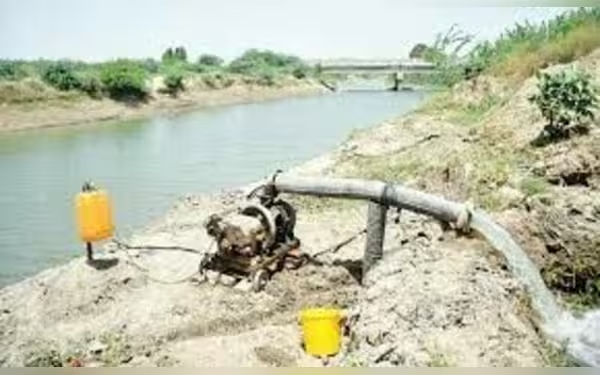Tuesday, December 24, 2024 12:49 AM
Sindh Farmers Oppose Cholistan Canal Project
- Farmers fear water diversion will render lands barren.
- Concerns over historical water scarcity in Sindh.
- Need for dialogue on equitable water distribution.
 Image Credits: dawn.com
Image Credits: dawn.comSindh farmers oppose Cholistan canal project, fearing water diversion will threaten their agricultural livelihoods.
In recent developments, farmers from the southern region of Sindh have expressed strong opposition to the proposed construction of six canals on the Indus River in Punjab's Cholistan area. This project has raised significant concerns among the agricultural community in Sindh, who fear that it could lead to devastating consequences for their lands.
The farmers argue that the new canals will divert essential water resources away from their fields, potentially rendering their lands "completely barren." This sentiment reflects a deep-rooted anxiety about water scarcity, which has been a pressing issue in Sindh for over 150 years. The farmers emphasize that the water problems they face are not a recent phenomenon, dating back long before the year 1935.
Mr. Shah, a representative of the farmers, has questioned the rationale behind utilizing surplus water for these canals. He highlights that the existing water distribution system is already strained, and adding more canals could exacerbate the situation. The farmers are concerned that their livelihoods, which depend heavily on agriculture, are at risk if the project proceeds.
Water is a vital resource for farming, and any disruption in its availability can have dire consequences. The farmers' fears are not unfounded, as many have already experienced the adverse effects of water mismanagement in the past. The potential for their crops to fail due to insufficient water supply is a reality they cannot afford to ignore.
As the debate continues, it is crucial for all stakeholders to engage in constructive dialogue. Finding a balance between development and the needs of local farmers is essential for ensuring food security and sustainable agricultural practices in the region. The voices of the farmers must be heard, as they are the backbone of the agricultural sector in Sindh.
The opposition from Sindh's farmers to the Cholistan canals project underscores the ongoing struggle for water rights in Pakistan. It serves as a reminder of the importance of addressing historical grievances and ensuring that all regions have equitable access to this precious resource. As discussions unfold, it is imperative to prioritize the needs of those who cultivate the land and contribute to the nation's food supply.













